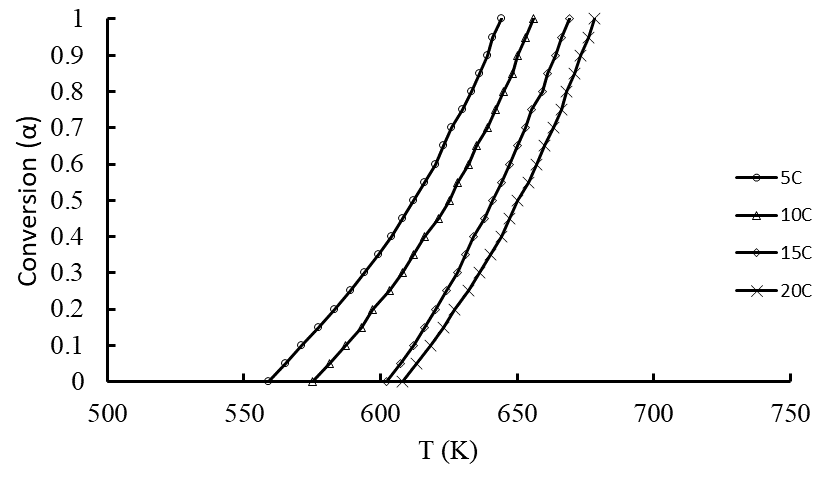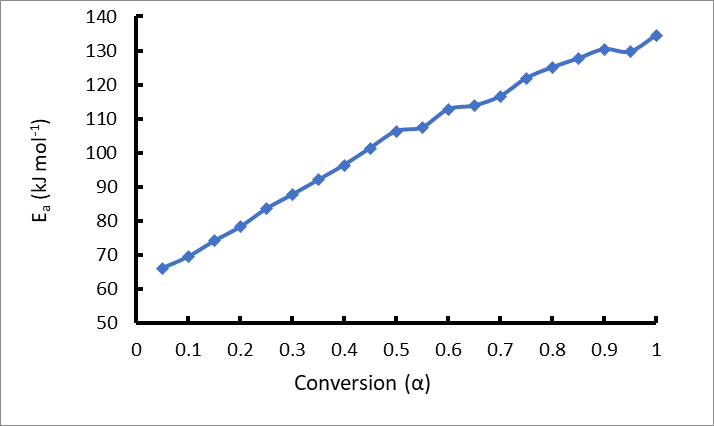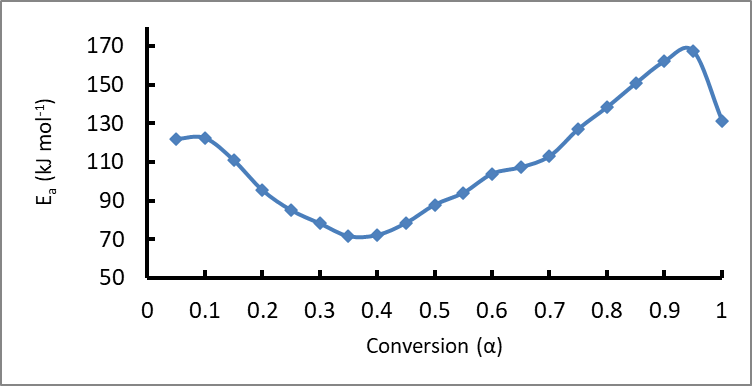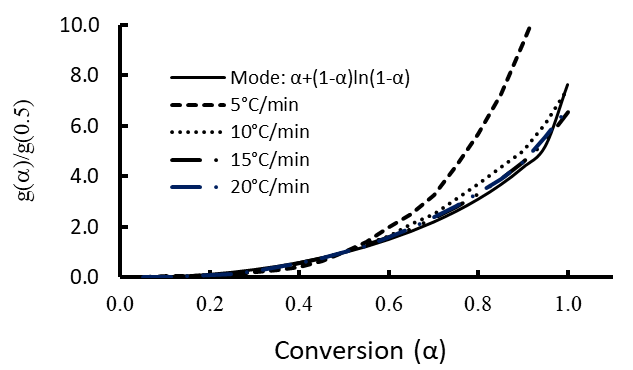Isoconversional Thermal Analysis of Cydonia oblonga Mucilage Composite Wound Dressing
Isoconversional Thermal Analysis of Cydonia oblonga Mucilage Composite Wound Dressing
Aniqa Nasir1, Rashid Masih1, Shazma Massey1*, Laiba Arshad2, Sabi Ur Rehman2, Irva Waqar1 and Anwar Khalid3
Thermograms of Cydonia oblonga simple wound dressing.
Thermograms of Cydonia oblonga drug wound dressing.
α vs. T(K) plots of Cydonia oblonga wound dressing.
α vs. T(K) plots of Cydonia oblonga drug wound dressing
ln(β/T1.92) vs. 1000/T(K-1) plots of Cydonia oblonga simple wound dressing.
ln(β/T1.92) vs. 1000/T(K-1) plots of Cydonia oblonga drug wound dressing.
Ea vs. α plots Cydonia oblonga wound dressing.
Ea vs. α plots Cydonia oblonga drug wound dressing.
Experimental and theoretical master plots of Cydonia oblonga wound dressing.
Experimental and theoretical master plots of Cydonia oblonga drug wound dressing.
Various models used to describe solid state kinetics (Iqbal et al., 2013).






















